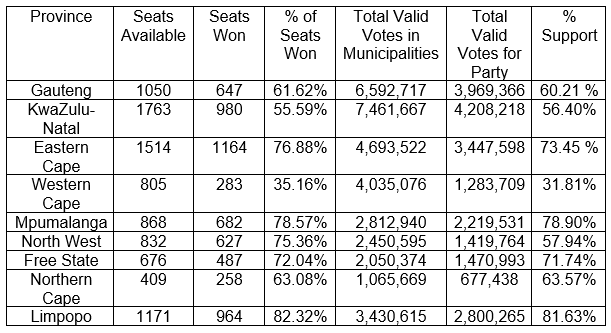The African National Congress (ANC) formerly South African Native National Congress was formed in January 1912 in Bloemfontein under the leadership of John Langalibalele Dube.
Prior to its formation, Pixley ka Isaka Seme, in 1911, called on Africans to forget the differences of the past and unite together in one national organisation. He said: “We are one people. These divisions, these jealousies, are the cause of all our woes today.”
Its primary mission was then to bring all Africans together as one people to defend their rights and freedoms.
Through the rallying call Amandla ngawethu or Matla ke arona meaning ‘power to the people’, the party was reflecting the central demand of the Freedom Charter that the people shall govern.
In the 1940s, the ANC Youth League was formed. Nelson Mandela, Walter Sisulu and Oliver Tambo were among the young leaders of the Youth League with their ideas on African nationalism.
In the 1950s, there were more Defiance Campaigns against apartheid laws. By June 1955, the Freedom Charter was adopted at the Congress of the People at Kliptown.
In February 1990, the apartheid government unbanned the ANC and released Nelson Mandela and other political prisoners. The ANC was able to openly recruit members and establish regional structures.
The social democratic party has been in power since 1994 after the first democratic elections in South Africa. It has won every election in post-apartheid South Africa.
It is supported by its tripartite alliance with the Congress of South African Trade Unions (Cosatu), the South African Communist Party (SACP) and the South African National Civics Organisation (Sanco).
Since 1994, the party has had 4 presidents and won all general elections comfortably above 60% except in 2019 where the party scored 57.5%. At the municipal level, in 2016 the ANC only secured 55.7% of the votes, 6.2% less than its 2011 performance.
Cyril Ramaphosa is the current president since December 2017.
ANC’s 2011 Local Government Elections
The ANC garnered 16,548,970 total Ward and PR votes. This resulted in a majority election victory of 61.95%. The party gained 5631 council seats across the country. It got to control 198 councils.

ANC’s 2016 Local Government Elections
The ANC garnered 16 099 189 total Ward and PR votes. This resulted in a majority election victory of 53.91%. The party gained 5163 council seats across the country and got to control in 176 councils.

The ruling party’s voter support waned drastically between the 2011 and 2016 Local Government Elections. It lost 8% between the period, falling to a low of 53.91 – its lowest ever support.
- There was also a difference of 468 council seats received in 2016 as compared to 2011.
- The ANC lost support over this period in Gauteng (falling below 50%), Eastern Cape, Mpumalanga, Western Cape, Northern Cape, Free State and Limpopo.
- It gained support over this period in KwaZulu-Natal and North West.


